People Who Stop Caring About Fitting In As They Get Older Usually Have These 11 Reasons
Comparison culture is often driven by a misguided need for control.
 Olena Tselykh / Shutterstock
Olena Tselykh / Shutterstock Comparison is a fundamental part of human nature. We’re always looking to other people for information and feedback on how to think, look, act, feel, and behave. However, in the modern world, the kinds of comparisons we typically make between ourselves and others aren’t necessarily for the sake of survival (although, at times, they can feel like it), but rather ways to keep up with trends, police our own behavior, and develop an identity that aligns with who want to be socially, not who we know ourselves to be internally.
Jane Bolton, Psy.D., M.F.T., explained that comparing yourself to other often has a negative impact on our self-esteem and connectedness. This tendency comes naturally to young people who haven’t fully fleshed out their understanding of who they are, but people who stop caring about fitting in as they get older usually have important reasons for doing so. They’re not only more confident and secure than they were when they were younger, but they know from experience just how damaging too much comparison can be.
People who stop caring about fitting in as they get older usually have these 11 reasons
1. They’re more self-aware
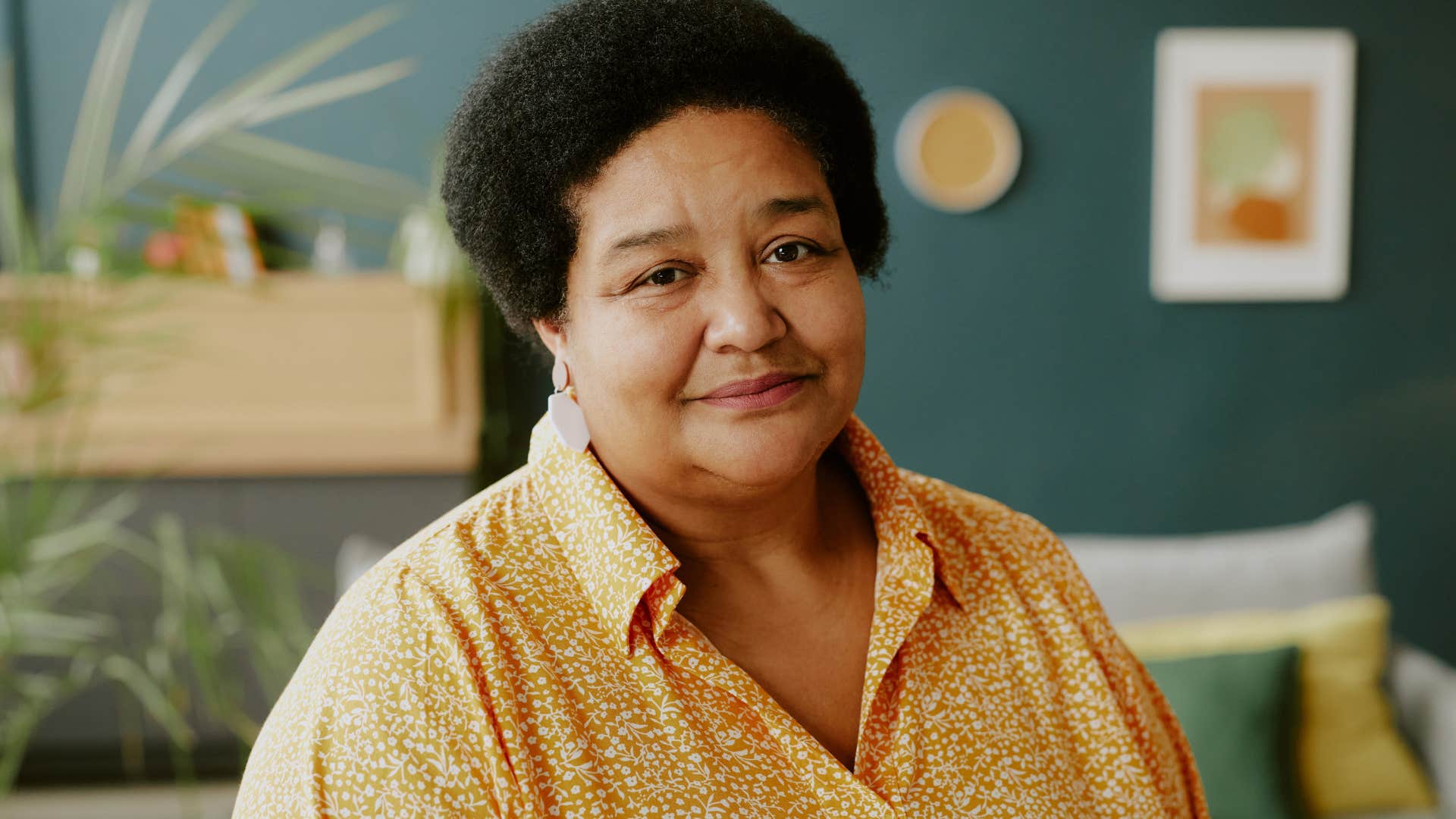 Anna Stills | Shutterstock.com
Anna Stills | Shutterstock.com
According to Craig Dickerson from Harvard Business Publishing, self-awareness isn’t always exclusively built from experience, it’s also built from an understanding and acknowledgement of what's known as the ladder of Inference. This mental ladder essentially explains the internal decision-making process we use on a daily basis, it’s all the assumptions, beliefs, observations, choices, and experiences we analyze to make a decision, even if it’s small.
By recognizing this process and being able to reflect and acknowledge it while making decisions, older people practicing and building their own self-awareness can more easily remind themselves of the dangers of comparison culture. They feel less driven to fit in, not only because they have the experience of low self-esteem and ingenuity turmoil to pull from, but because they understand the framework of comparison culture and the misguided societal and personal drivers that fuel it.
Of course, self-awareness isn’t the only key to fully separating yourself from the desire to fit in, but it can help to contextualize certain decisions we make fueled by discomfort or intense emotions that lead to comparisons out of fear.
2. They have a better understanding of their values
 Voronaman | Shutterstock.com
Voronaman | Shutterstock.com
With time and experience also comes more clarity, at least for people with a sliver of intention for personal growth as they get older. Through conversations, experiences, grief, and adversity, people become more clear on the things that are important to them. They have clarity on their values and belief system as time continues to pass.
People who stop caring about fitting in as they get older are no longer yearning for the stability of a value system. They don’t feel the need to look for other people’s opinions or advice, because they know what they want and need.
3. They feel secure in their authenticity
 insta_photos | Shutterstock.com
insta_photos | Shutterstock.com
Feeling secure is essential to a great deal of experiences we have throughout our lives. From our relationships and experiences with our parents to navigating making friends in early adulthood and solidifying a value system later in life, internal security, driven by self-esteem and self-worth, drives our decision-making and influences our choices.
When we feel less secure, it’s not just anxiety that’s sparked, it’s feelings of fear, uncertainty, low self-worth, and confusion. You’re yearning for control, and for many, the misguided way they seek it is by comparing themselves to others, coping with people's successes, and trying to fit in with the rest of the world.
Of course, people who stop caring about fitting in as they get older generally feel secure in their identity, skills, and authenticity, and don’t feel the need to look around and compare themselves.
4. They have a strong social circle
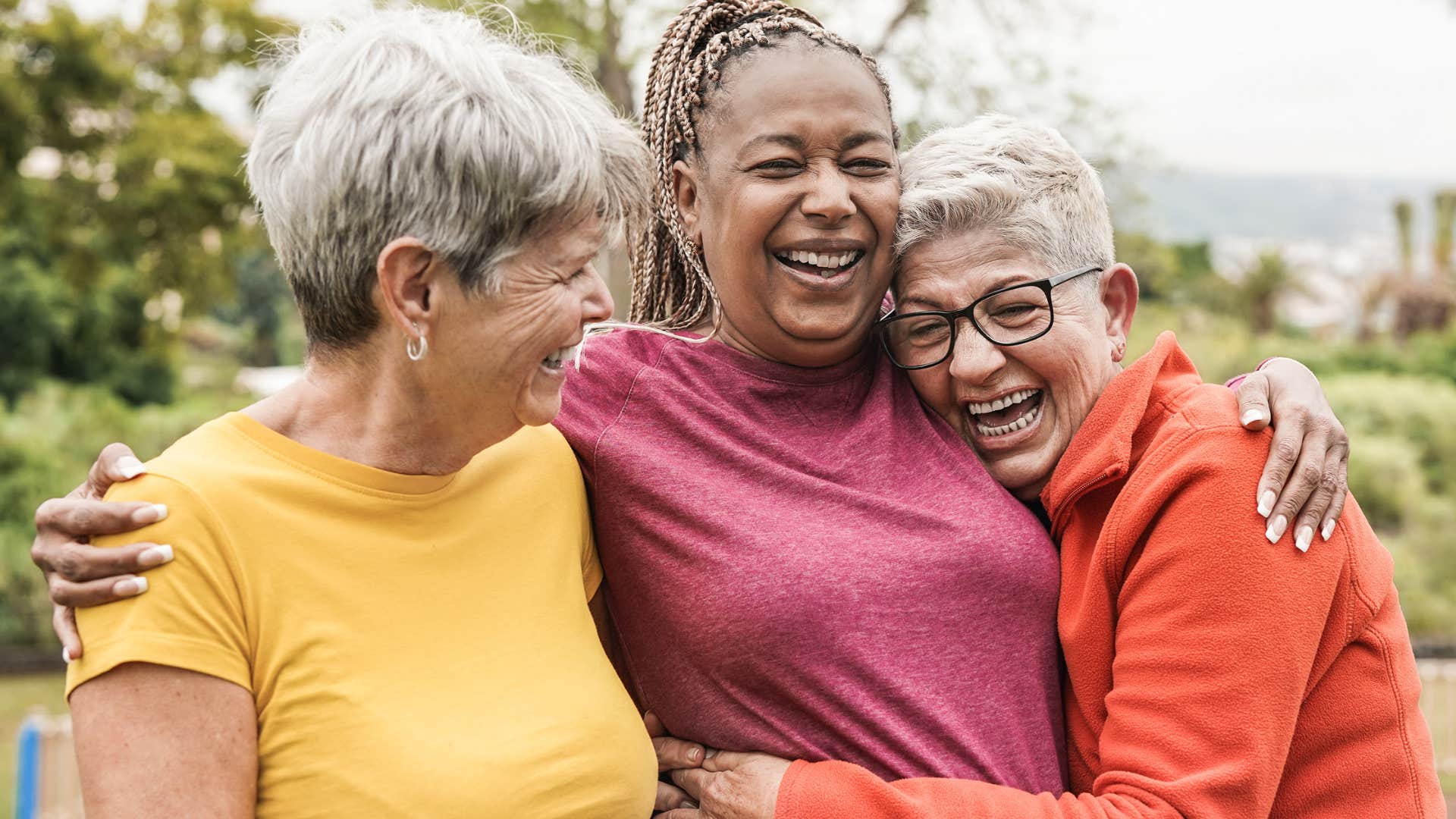 Sabrina Bracher | Shutterstock.com
Sabrina Bracher | Shutterstock.com
Having friends, family, or a partner that accepts us for who we truly are is the key to breaking free from seeking external validation and constantly comparing ourselves to others. We reinforce the idea, through our personal interactions and conversations, that being our authentic self is more rewarding than trying to be someone we’re not.
Outside of emotional and mental health, experts from the Mayo Clinic also suggest that having a supportive social circle can lower the risk for other health problems like obesity, depression, and high blood pressure. So, for aging people, it’s often too much of a trade-off to hyperfocus on trying to fit in when it’s a detriment to their emotional and physical well-being.
5. They view conformity as a detriment to personal well-being
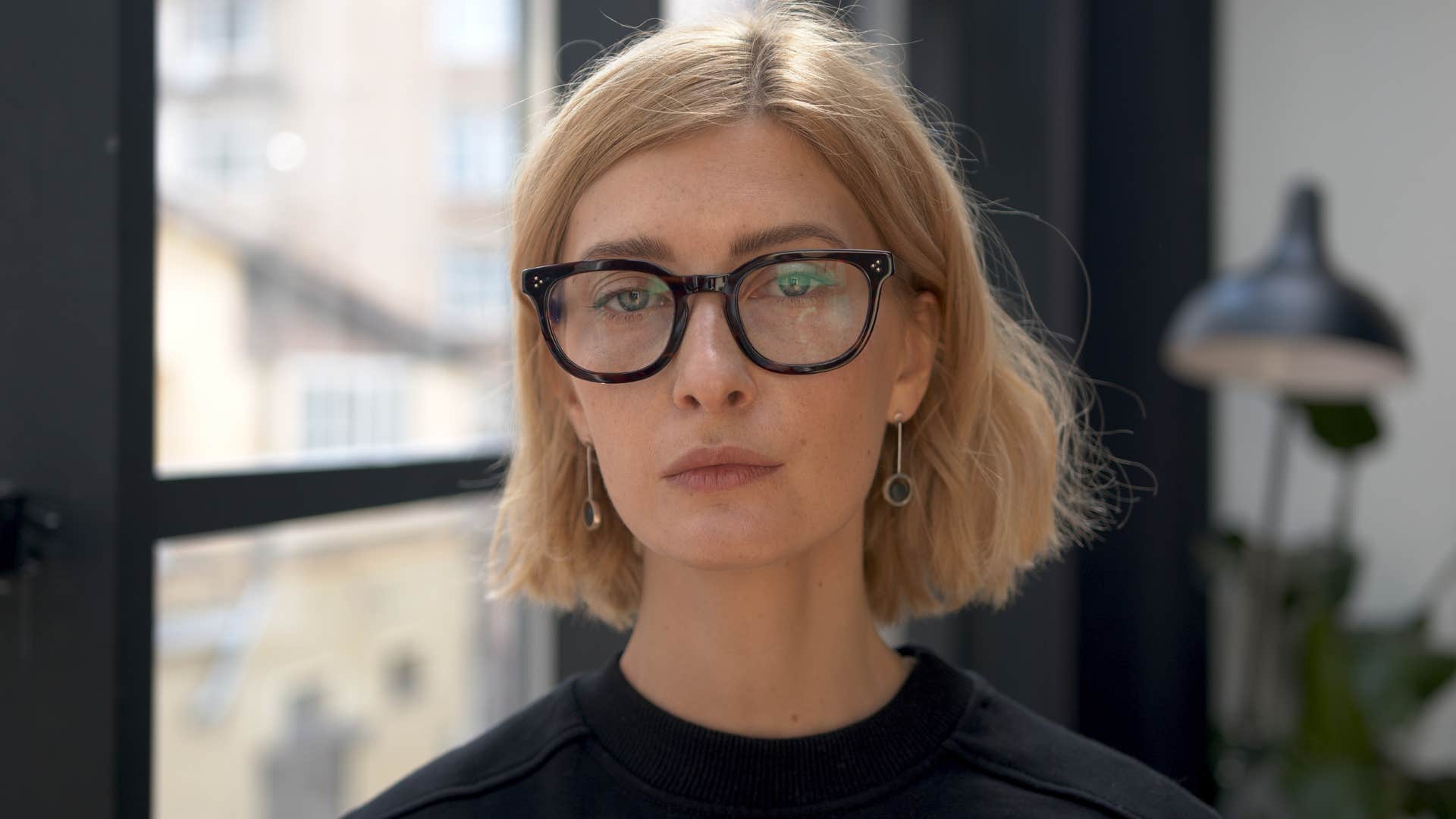 DIProduction | Shutterstock.com
DIProduction | Shutterstock.com
According to psychologist Jessica Koehler, the conformity trap, where people feel pressured to give up their own authenticity for the sake of fitting in, generally sabotages people’s well-being, self-esteem, and confidence from a young age. Excessive conformity can be detrimental to personal well-being, causing people to overlook and ignore their own needs and desires for the sake of comparing themselves, meeting societal expectations, and making their identity more comfortable for the general public.
"When individuals suppress their personal values and beliefs to conform," Koehler sad, "their self-esteem and self-worth can erode over time as they feel unable to express their true selves. This suppression of individuality can lead to a lack of personal fulfillment, making individuals feel like mere shadows of themselves."
People who stop caring about fitting in as they get older know how to communicate their needs, practice self-reflection, and never let conformity drive their personal decisions and choices.
6. They have more clarity about their personal goals
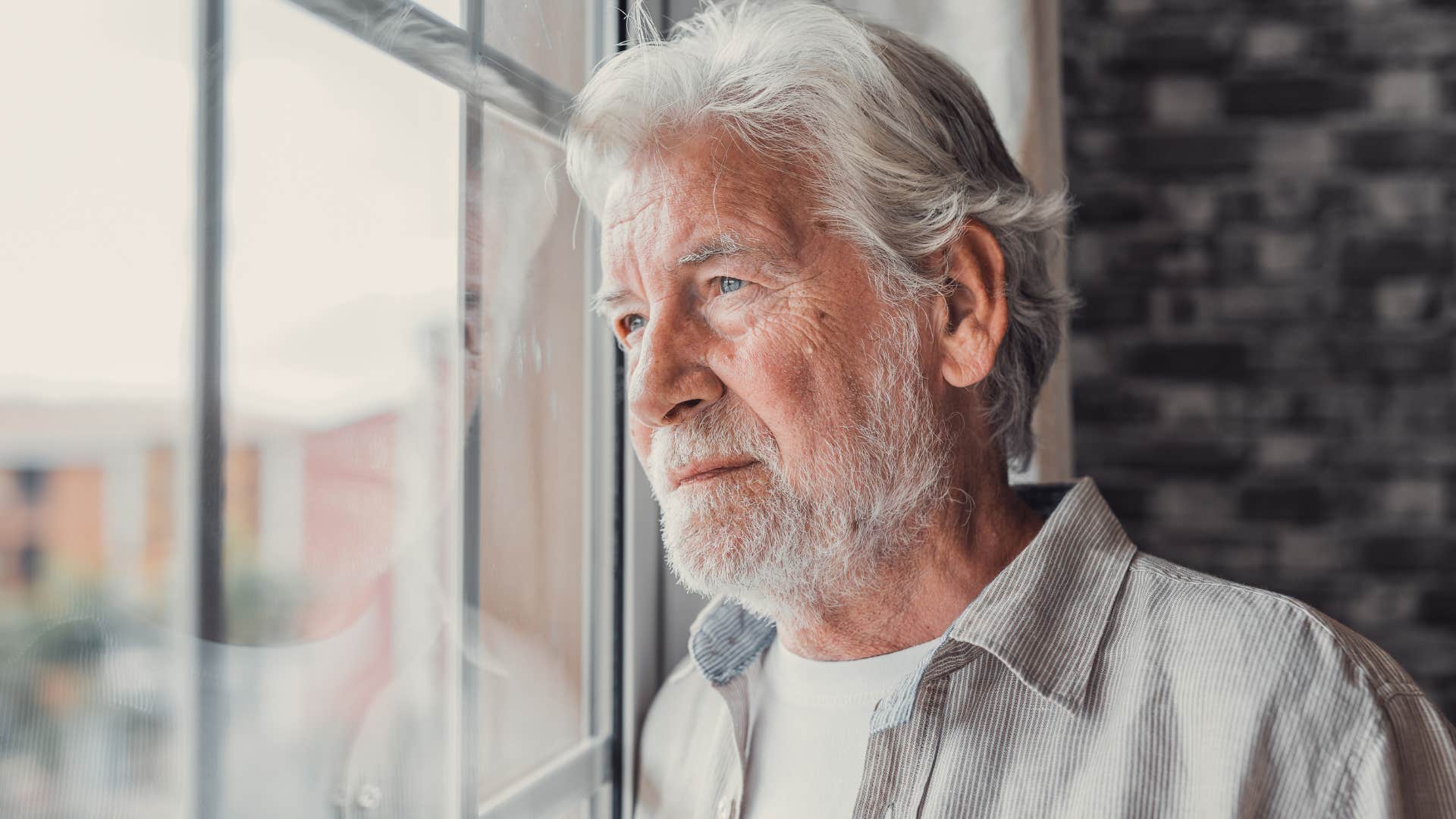 Perfect Wave | Shutterstock.com
Perfect Wave | Shutterstock.com
People who stop caring about fitting in as they get older usually have more clarity about their goals and personal values than those who fall into a toxic cycle of comparison culture. They know what they want and need, so they’re not pressured by the success and journeys of other people — at least, to the point of disrupting their own path.
Of course, having and working towards goals as you get older isn’t always easy, especially with societal stigmas around aging. However, doing so is incredibly beneficial, not just in aiding people who stop caring about comparing themselves to others, but also for emotional, psychological, and physical health.
7. They have life experience
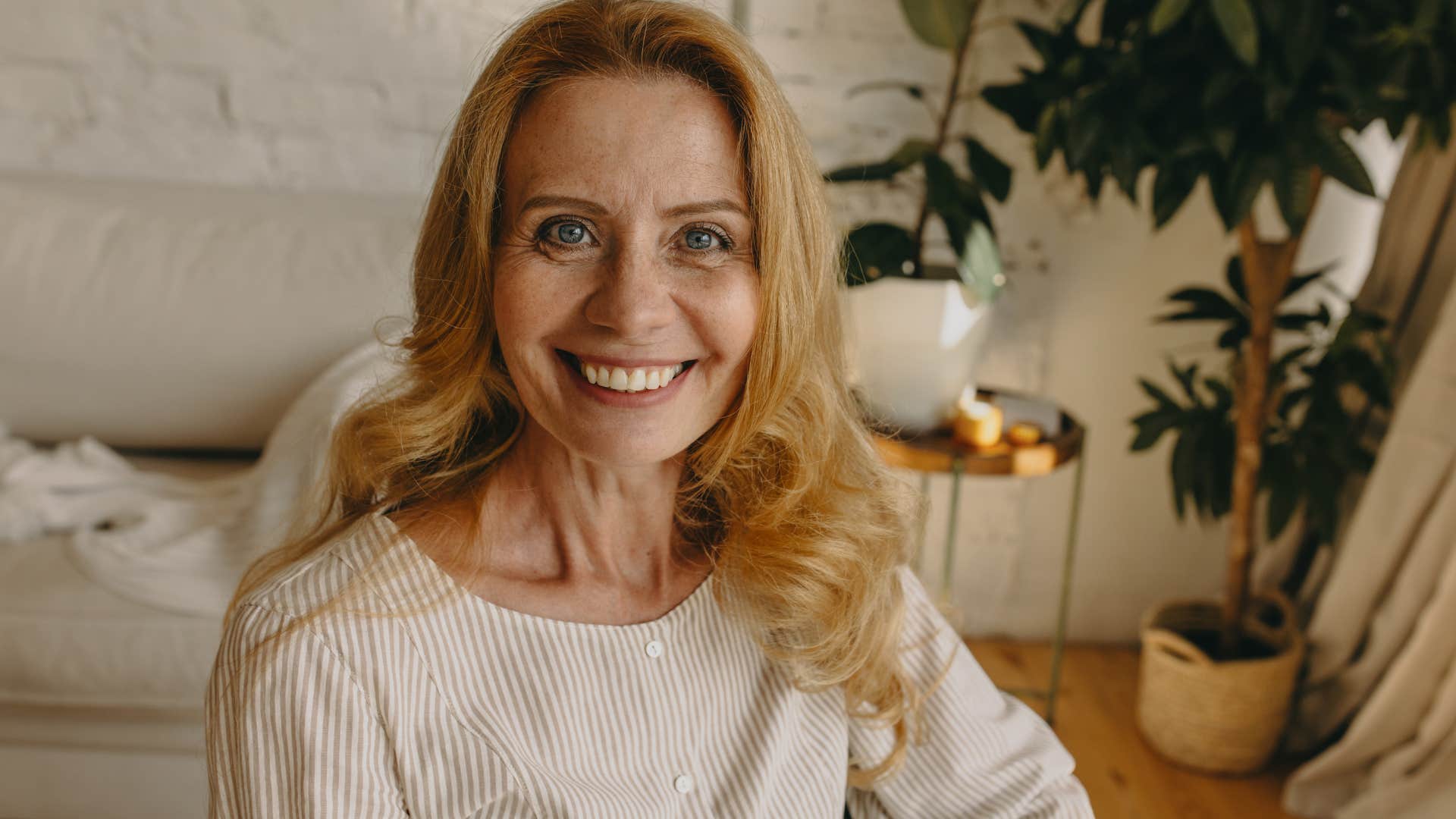 shurkin_son | Shutterstock.com
shurkin_son | Shutterstock.com
Much of the comparison culture that younger generations find themselves dealing with is driven by a lack of experience and internal security. From dating to entering the workforce and developing a grown-up personal identity, older people have more experience to draw from when figuring out what they want and need.
For younger generations today that are flooded with opportunities to feed into this culture with social media and internet accessibility, it’s especially hard to not feel drawn to fit in. The uncertainty of new adulthood, especially coupled with other financial, social, and personal strains, can make comparison culture feel like it offers a sense of security and control. You know what to do, what to expect of others, and what expectations to hold yourself to, no matter how toxic they are.
8. They know it’s impossible to please everyone
 Pics Five | Shutterstock.com
Pics Five | Shutterstock.com
Toxic comparison culture is often driven by the idea that there’s one right way to live your life, express yourself, or achieve goals, when truthfully, everyone is uniquely different. Whether it’s the journey to success, the appearance you choose for yourself, or the goals you set, trying to fit in with everyone else is the best way to set yourself up for disappointment.
People who stop caring about fitting in as they get older usually understand that it’s impossible to please everyone. They know they’re not going to be everyone’s cup of tea. But their own authenticity makes it easier to connect with people and achieve the things that are truly meant for them.
When you believe that it’s your job to fit in and warp your identity to be more approachable to others, you’re only focusing on the shortcomings you believe yourself to have. When you make new friends, interact with co-workers, or scroll on Instagram, you’re holding up a mirror for others that only illuminates your flaws.
9. They don’t see other people as competition
 Lordn | Shutterstock.com
Lordn | Shutterstock.com
People who stop caring about fitting in as they get older generally stop feeding into a competitive mindset when they’re meeting new people, listening to someone share their accomplishments, or scrolling through social media.
As Alice E. Schluger, Ph.D., suggests, healthy competition is possible, but oftentimes it encourages people to compare themselves to others at the expense of their self-esteem. When you’re subconsciously competing with other people in your life, you’re not only looking to others for approval, you’re adopting the misguided belief that success, appreciation, praise, and love are limited, when in reality, there’s enough for everyone to seek and enjoy.
As you get older, many people stop competing with others and start competing with themselves, focusing on personal growth and success rather than comparisons and competitions with others.
10. They’re emotionally resilient
 Ground Picture | Shutterstock.com
Ground Picture | Shutterstock.com
Emotional resilience — the ability to respond to crises, adversity, or stress with grace — is the key for older adults who are no longer interested in fitting in. When there’s a stressful decision needing to be made at work, their friends are arguing, or they’re feeling uncomfortable in their outfit, they have the emotional intelligence to acknowledge their discomfort and move forward.
However, for a great deal of younger people who haven’t practices this kind of emotional resilience for long, it’s often easier to try to fit in by copying other people and relying on comparisons to unhealthily cope with that discomfort. While it may seem like a temporary Band-Aid fix, they’re only feeding into a cycle that sabotages their true self-esteem and self-worth in the long run.
Of course, any kind of emotional intelligence doesn’t immediately appear overnight once you’ve reached a certain age. It’s something you have to intentionally practice and work for.
11. They embrace their good and bad traits
 insta_photos | Shutterstock.com
insta_photos | Shutterstock.com
Given their greater self-awareness, people who stop caring about fitting in as they get older usually embrace both their good and their bad traits. They know where they need to grow, but they don’t demonize or shame themselves for acknowledging those shortcomings, protecting themselves from feeling the need to seek external validation or change something inherently ingrained in themselves.
Of course, self-esteem isn’t just an inherently important trait for people to have better relationships and internal stability. It also feeds into their physical and psychological well-being, according to a study published in the American Psychologist journal.
When you lead with empathy in your life, you’re not just making better friends, you’re building a more stable, comfortable, and fulfilling relationship with yourself.
Zayda Slabbekoorn is a staff writer with a bachelor’s degree in social relations & policy and gender studies who focuses on psychology, relationships, self-help, and human interest stories.

